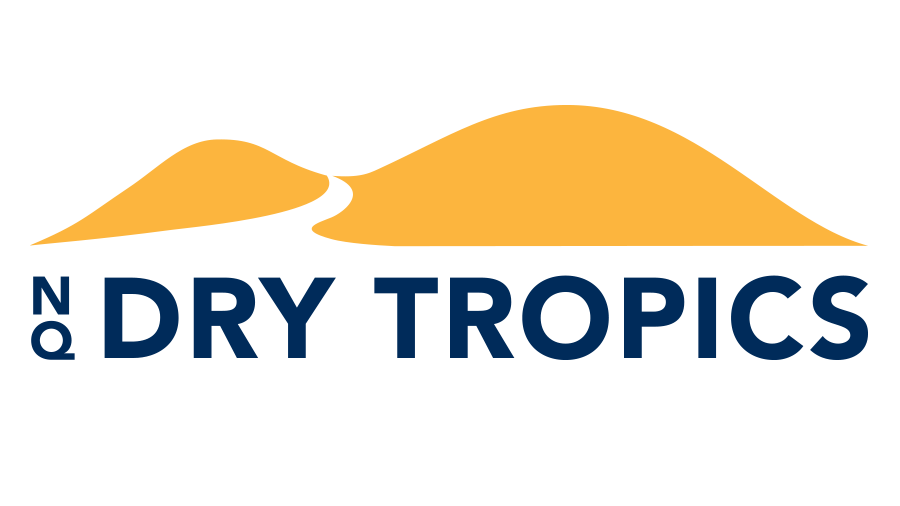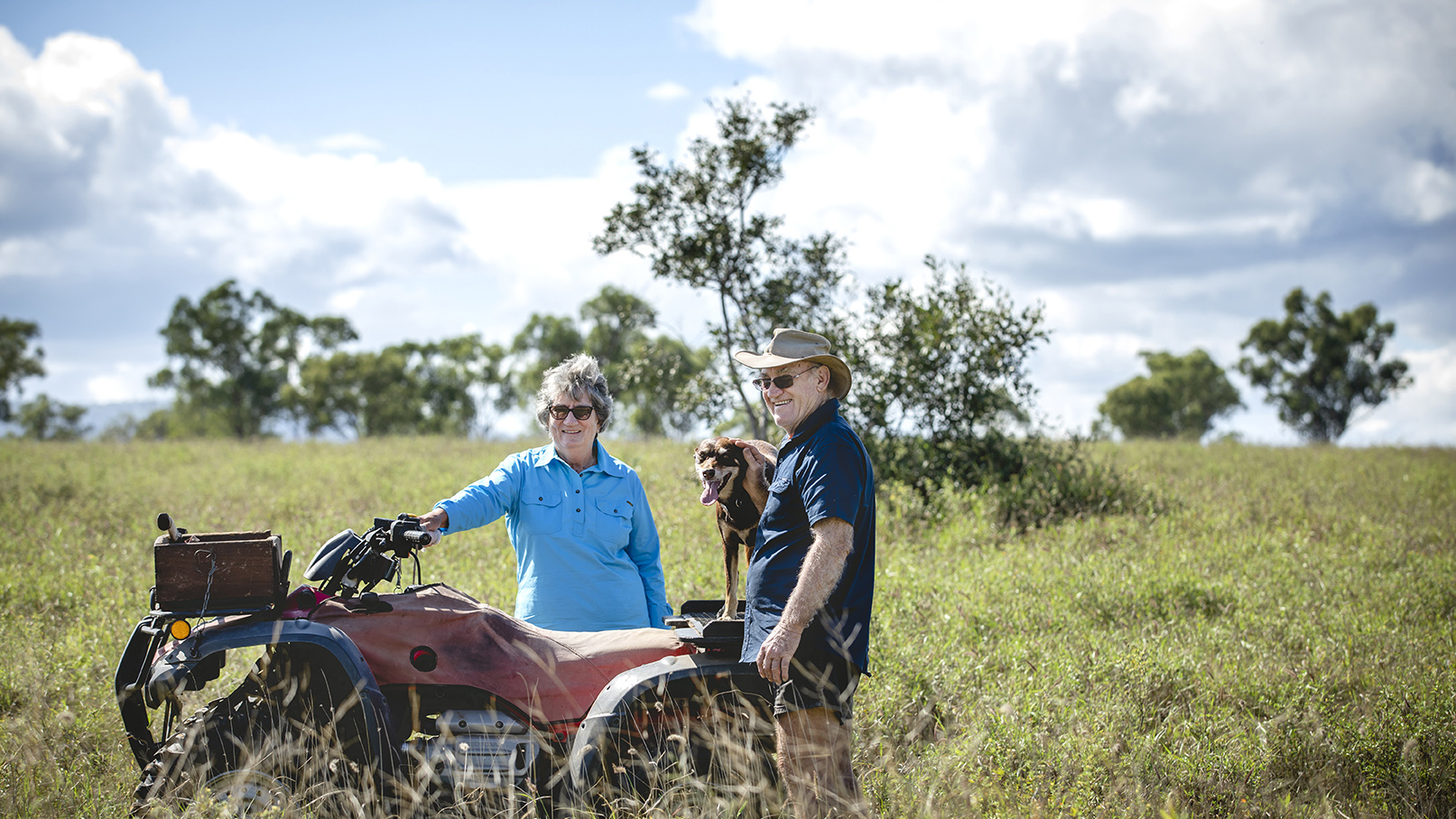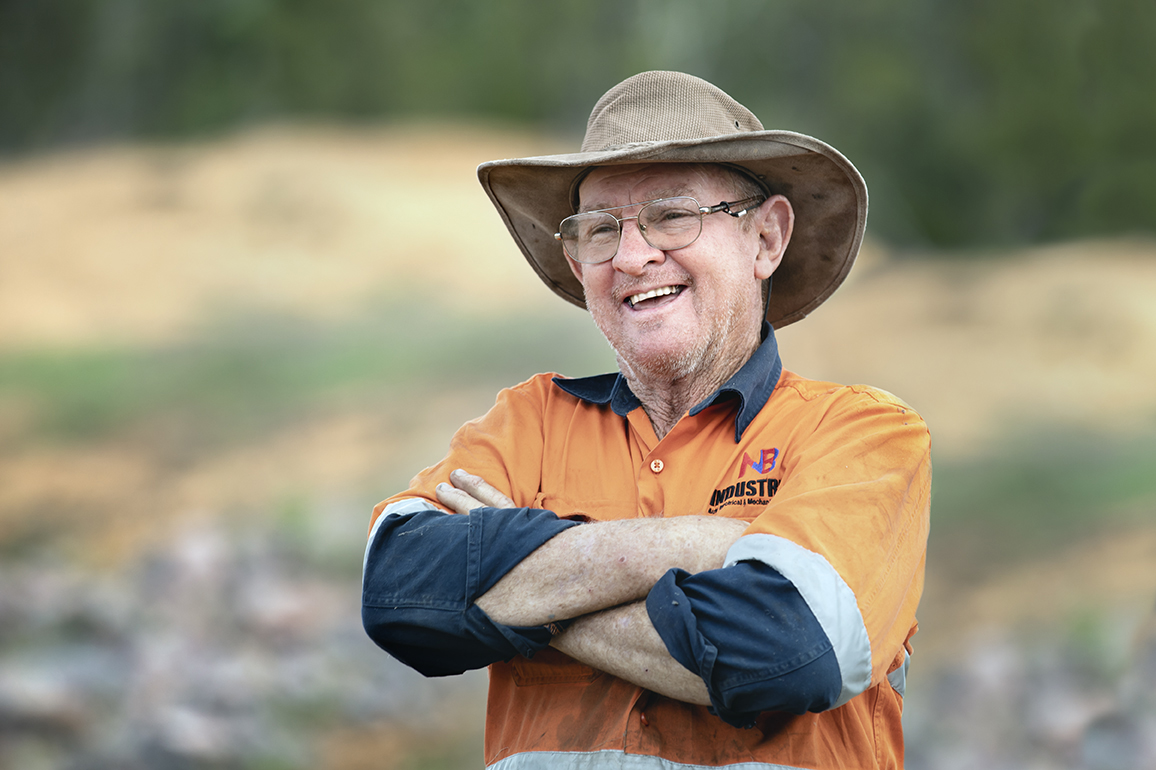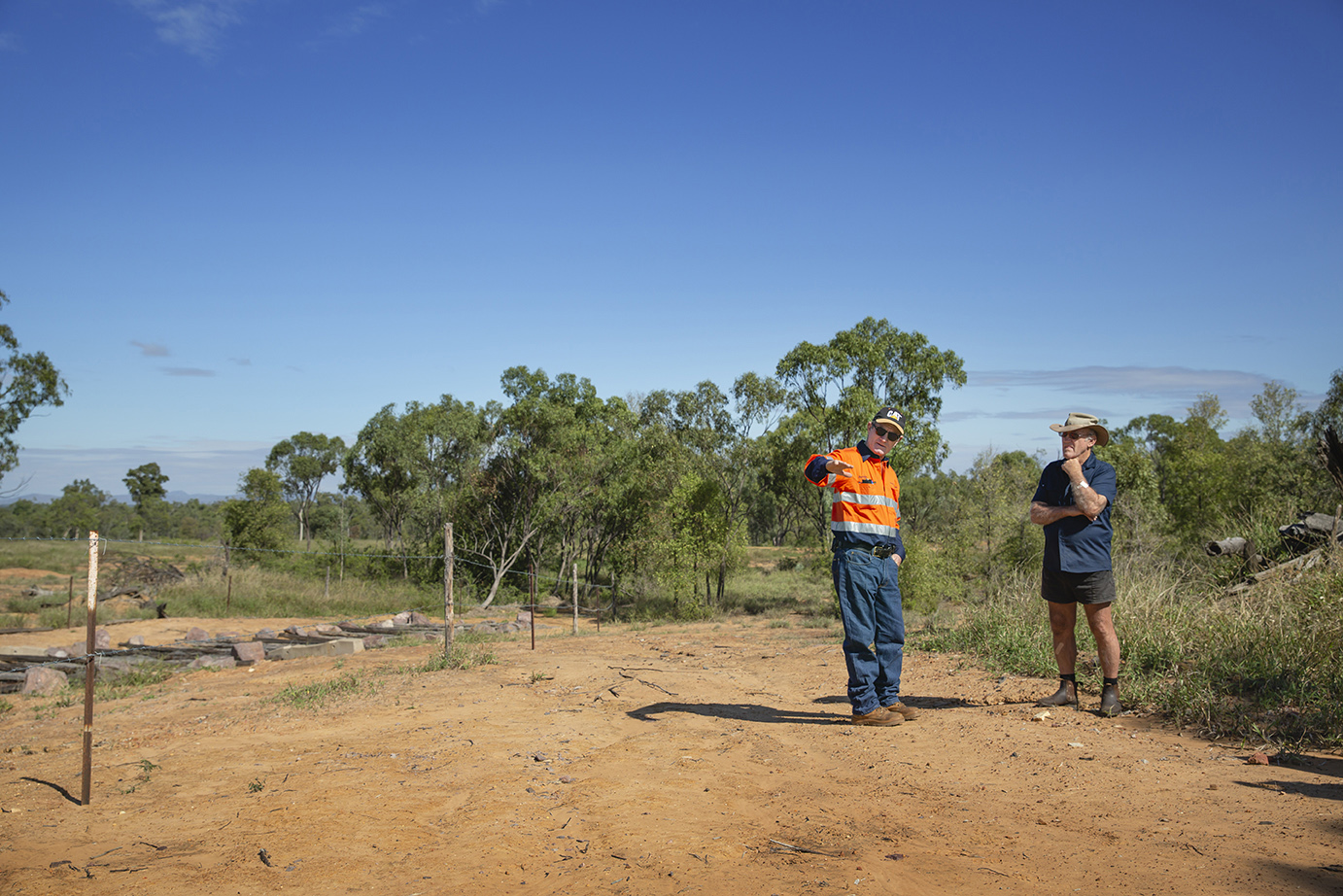Scottville landscape remediation works pay off
Small-scale land remediation efforts by graziers from six properties at Scottville (near Collinsville) are paying dividends.
Landholders treated site-specific erosion areas to divert surface water from gullies and back onto the paddocks, keeping water and topsoil on properties.
During a series of recent site visits, enthusiastic graziers were pleased to demonstrate their hard work is paying off.
Although there hasn’t been a big wet, rainfall received during the past few months has been captured and is staying on the paddock. Ground cover is establishing well, with a great mix of grasses and legumes among the flush of green pasture, .
Remediation works included surface water diversion banks, installing rock chutes and gabion baskets, reshaping eroded areas and seeding topsoil at these locations.
All on-ground works were carried out by local contractors, and the graziers provided some in-kind machinery and significant labour, which kept costs down. They also had input into the design of the works in consultation with Department of Agriculture and Fisheries Principal Extension Officer Bob Shepherd.
Carl Groocock, of Three Mile, left, and Barry Collett, grazier and local earthworks operator, inspect a reshaped gully and diversion bank on Three Mile to manage surface runoff that Barry carried out. The remediated site is responding well, ground cover has improved.
Scottville grazier Stanley Fordham, of Emoruo, is delighted with the results of the work he and local contractor Bernie Fordham carried out to remediate an eroded by-wash of a dam to reduce run off.
Glencore provided in-kind support through sharing expertise and knowledge in landscape remediation techniques, and also provided the majority of rock for the rock chutes.
Stock will be re-introduced under a rotational grazing system to the sites once ground cover levels and structure stability has been achieved.
A field day is being planned for the end of July.
This work was delivered as part of Landholders Driving Change, a Burdekin Major Integrated Project funded by the Queensland Environment Department Reef Water Quality Program.




